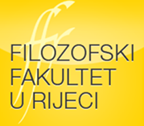POSTGRADUATE SPECIALIZATION STUDY PROGRAMME “PSYCHOLOGICAL COUNSELLING”
About the programme
Specialization study programme is organized for the graduates of the appropriate university course in the field of social sciences (psychology course).During the study, students are obliged to accumulate 120 ECTS points.
Structure of the programme
The program is carried out over 4 semesters. During the first 2 semesters, the emphasis is predominantly on obligatory subjects, while the following 2 semesters is more focused on elective courses as well as supervised practice and development of independent work. The ratio of obligatory (170 hours) and elective courses (80 hours) facilitates individualisation of the study.
The study is organised in accordance with the principles of the ECTS point system. During each semester, students are required to collect 30 ECTS points.
ECTS points are awarded for:
- Completion of required responsibilities to obligatory and elective courses;
- Fulfilment of responsibilities at supervised practicum, independent work of students through studying literature. Conducting independent practice, preparing illustration of cases etc.;
- Preparation for final examination and completion of final paper;
- Various supplementary professional and scientific activities (e.g. active participation at professional-scientific meetings or publishing professional/scientific papers in journals).
ECTS points should be collected through fulfilment of the requirements of obligatory courses (40 ECTS points), elective courses (35 ECTS points), supervised practicum (15 ECTS points), supervised practice and development of independent work (15 ECTS), as well as completion of final paper (8 ECTS points). The remaining elective 7 ECTS points are collected by students through various scientific and professional activities.
Academic title: University specialist of psychological counselling
Who can enrol
Only persons who fulfil the following conditions can enrol in the study:
- Graduate psychologists/professors of psychology who have completed their studies in accordance with the educational program valid up to 2005/2006 as well as psychologists who have completed their degree study of psychology (Master's degree).
- At least 1 year working experience working directly with people (candidates from Croatia should have passed the professional examination of the Croatian Psychological Chamber (CPC).
- The possibility of carrying out independent work in the field of psychology in accordance with the regulations of the country in which the candidate works (candidates from Croatia must comply with the criteria regulated by the Law on Psychological activities).
- The possibility of direct counselling work with clients.
Competences
The program allows students to gain competence in the area of understanding and application of various models of psychological counselling, adoption of counselling and therapeutic skills, psychological assessments as well as professional ethics within the scope of counselling. Along with acquiring skills in working with clients, the program includes promotion of personal and professional development of the psychologist.
The basic competencies which the students attain through the specialization relate to a wide range of knowledge and insight as well as specific professional skills which can be demonstrated in various areas of psychological counselling (education, health, social welfare, army, private practice etc.) and with various populations (children, adolescents, adults, the elderly, persons with various mental disorders along with patients with bodily disorders). Although the program is focused on short counselling treatments with persons without severe mental disorders and with whom more attention is concentrated on the assets and strong points of the individual and less on the psychopathology, attendees will master additional knowledge from the area of clinical assessment and pschopathology so that they will be trained to recognise real indications for counselling as well as the limitations of counselling.
It is anticipated that on completion of the study, attendees will be able to professionally provide counselling services within the scope of their work and will be qualified to create, organise and carry out various preventive activities.
Apart from the specific competencies mentioned, development of generic competencies is planned i.e. critical thinking and critical reference in using data collated from various sources, assuming responsibility for one's own learning and raising of awareness for life-long learning.












